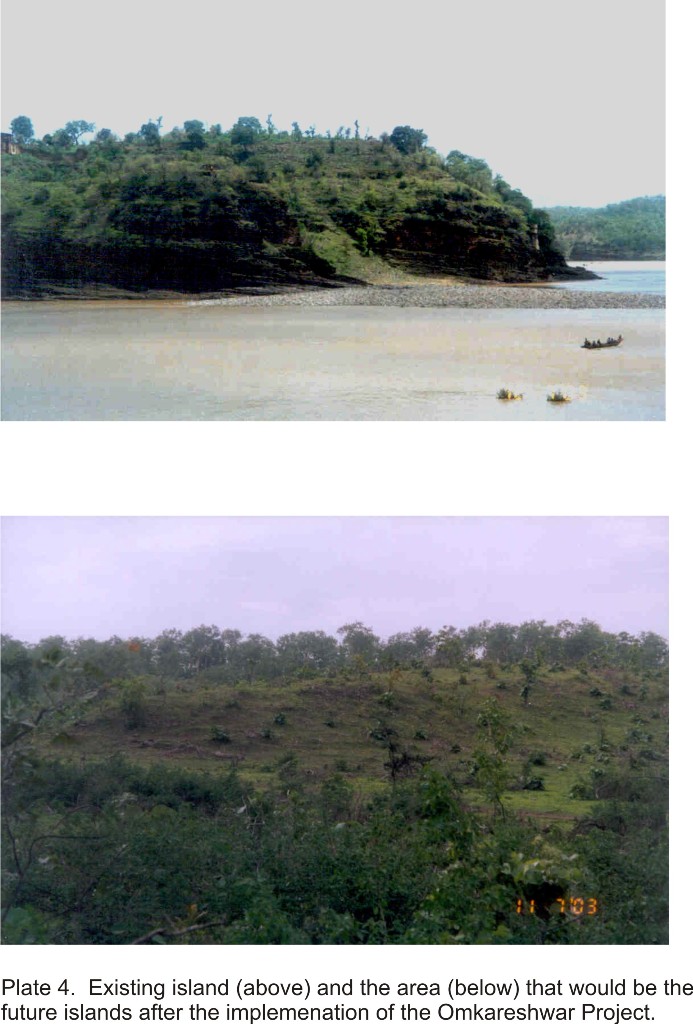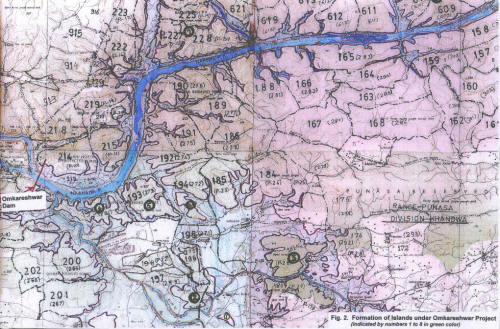Formation of Islands
Due to the hilly and undulating nature of the submergence, and the fact that the river level is at 157 m, while the FRL will be at 196.6 m, there will be some areas within the submergence, which are high enough to form islands of varying sizes (Plate 4). These islands would be future wildlife havens because of insulation from adverse factors. Six islands have been identified in the south and two in the north. Whether they are formally declared sanctuaries or not, they will have physical protection and could be good locations for eco-tourism activities. The list of islands formed and their location by compartment numbers is given in the Table 5 below:
Table 5. Formation of Islands after the implementation of Omkareshwar Project
| S.No. | Location (New compt. Nos.) |
Area (ha) | Forest Status |
Remarks |
|
| Present wiIdlife status |
Future wildlife status |
||||
| 1 | South of Kelwa BZ | Non-Forest | Nil | Well protected and has the for good habitat if protected from grazing. | |
| 2 | Cpt 196, 197 | Forest |
Poor | ||
| 3 | Compt. 181 (Also some clusters of islets in east & west) | May not be full islands. Likelihood of an isthmus through | Forest |
" |
|
| 4 | Compt. 194 | Cpt. 176. May get connected to 194 main. |
Forest |
" | Potential habitat for bird species
|
| 5 | Compt. 193 | Forest |
" | Large area. Good, if protected. | |
| 6 | Compt. 199 | Forest |
" | Very good. Large area. |
|
(b) North Bank:
| 1 | Compt. 224 225 227 228 Khandwa Division |
Forest “ “ “ |
Average “ “ “ |
Good potential for habitat for birds. Probably included in Omkareshwar Sanctuary. |
| 2 | Compt. 607 608 609 610 Dewas Division |
Forest “ “ “ |
Average “ “ “ |
Very good potential for bird habitat. Probably included in Omkareshwar Sanctuary. |

Note:-
(i) Areas of islands are of above 200 m contour, and are less than actual area at 196.6 m submergence.
(ii) Areas are to be calculated by planimeter of by graphical means, as compartment. boundaries are not clearly marked especially in ‘submergence’ area.
(iii) List of permanent islands being formed (Marked in green numbers on Fig. 2.)

Last Updated: January 21, 2014









